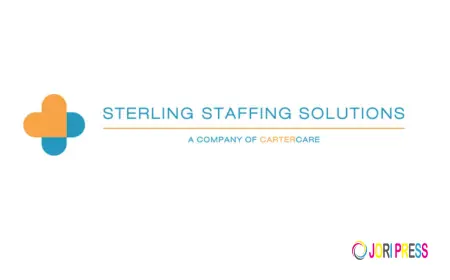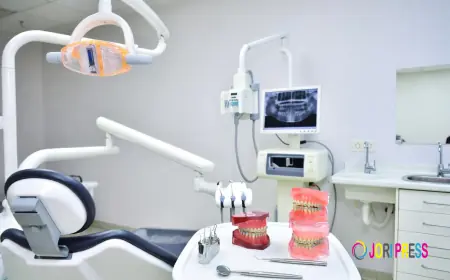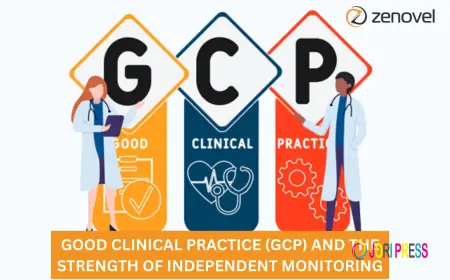The Hidden Emotional Labor Behind Managing Your Own Health

Most people talk about symptoms. Some talk about test results. Few talk about the mental toll it takes just to manage your own care.
Women often carry the weight of health planning. For themselves. For their families. For their parents. But no one teaches how to do it. No one warns how hard it will feel. And no one checks in to ask, "How are you holding up?"
This quiet burden has a name—emotional labor. It isn't loud. It isn’t seen. But it's always there. And for many women, it builds up over time.
From scheduling checkups to tracking symptoms that others dismiss, the work adds up. It’s not just one appointment. Or one test. It’s the thought that never stops.
An Arizona online NP for women’s health support once said that her patients often arrive more emotionally tired than physically sick. That says a lot.
It Starts Early and Never Stops
Health isn't only about problems. It's about planning. And women often start young. Tracking periods. Managing birth control. Remembering doctor visits. Carrying mental lists that others forget.
Later, it shifts to hormone changes. Pregnancy risks. Menopause symptoms. It rarely lets up.
And when someone does feel off—tired, moody, in pain—they still hear things like, "It's probably stress" or "You're just overthinking."
But they know their body. They know something's not right. And that means they push harder. They research more. They make lists for the doctor. They ask more questions. All of it takes energy.
That pressure doesn't come with a paycheck. But it comes with a cost.
Symptom Tracking Is a Full-Time Job
Women are often told to "listen to their bodies." But no one tells them what to do when the body whispers instead of screams. Is it just fatigue or something else? Does that pain matter, or is it just hormonal? Should they wait it out or get help?
So they track it all.
● Sleep patterns
● Energy swings
● Mood changes
● Cravings
● Bloating
● Period flow
● Pain scale
The list gets long. And that list sits in the back of their minds all day.
They don’t want to miss something important. They don’t want to seem like they’re panicking either. So they prepare. For every question. For every visit.
That mental prep feels small at first. But it grows.
The Appointment Doesn’t End at the Clinic
For many, care doesn’t stop when they leave the office. There are test results to read. Insurance claims to follow up on. Prescriptions to manage. New routines to adopt. And sometimes, second opinions to consider.
Women often handle all of this alone. Even when they have help, they usually lead the charge.
It gets heavier if the condition isn’t simple. Ongoing care for things like:
● Thyroid issues
● PCOS
● Infertility
● Hormone shifts
● Nutrient problems
These don’t have one-time fixes. They need follow-up, patience, and constant self-checks.
That constant checking brings its own stress. What if the plan isn’t working? What if new symptoms show up? What if no one listens?
Anxiety and Health Are Linked
When someone has to work this hard just to get care, the stress builds. That stress affects the body too. Anxiety can worsen pain. It can mess with digestion, sleep, and hormone balance.
And then, when those symptoms show up, the cycle starts again. Some women hear, "It’s just anxiety."
But it isn’t "just" anything. It’s all connected. Mental health should sit next to physical health. Not after it. Not beneath it. Both deserve equal care.
What Women Actually Need
They need space to ask real questions. They need someone to listen without brushing off symptoms. They need care that sees the full picture.
Women’s health care should look beyond labs. It should ask how life feels. How the body feels. How they’re coping.
Services like:
● Birth control support
● Menopause care
● Help for depression
● STD screenings
● Nutrient testing
● Thyroid care
● Infertility options
These are not one-size-fits-all. Every woman brings a different story. A different goal.
And the provider should treat her like a person, not a chart.
Emotional Labor Isn’t “Extra Work”
Some people think health care is just showing up to appointments.
They don’t see the hours spent reading up on symptoms. The time lost waiting for test results. The emotional weight of not knowing what’s wrong. The guilt of asking questions. The fear of hearing bad news.
All of that is real work. And women do it all the time. Sometimes silently. Sometimes without thanks. Often without breaks.
That labor needs to be seen. And valued. And supported.
The Role of Virtual Support
Some women can't always visit a clinic. Time, cost, or distance make it hard.
Virtual care has made some things easier. Now they can:
● Check symptoms from home
● Refill prescriptions quickly
● Get answers without long waits
● Speak with someone who knows their history
This isn’t just a tech trend. It’s a relief for many.
An Arizona online NP for women’s health support helped one patient manage PCOS while working full-time and raising two kids. She didn’t have to miss work. She didn’t have to sit in traffic. But she still got care that felt personal.
That’s how real change happens. One patient at a time. One good listener at a time.
Final Thoughts: Where Care Feels Personal Again
Linda Clark sees what others miss. Not just the symptoms, but the person behind them. She works with patients 12 and older across Arizona, California, Nevada, Colorado, Utah, Idaho, and Virginia. Her care isn’t rushed. It isn’t rigid. It’s shaped around real needs.
Linda holds an APRN credential and is board-certified through the ANCC. She brings deep skill, but more than that—she brings time, thought, and care. Her goal is to lighten the weight patients carry, not add to it.
From irregular periods to mental health struggles, from thyroid issues to acute pain, she listens. She responds. She adjusts the plan when something doesn’t work. And she stays involved.
Women’s health shouldn’t feel like a maze. With Linda, it doesn’t. It feels like a path. One that fits. One that leads forward.
What's Your Reaction?
 Like
0
Like
0
 Dislike
0
Dislike
0
 Love
0
Love
0
 Funny
0
Funny
0
 Angry
0
Angry
0
 Sad
0
Sad
0
 Wow
0
Wow
0



















































